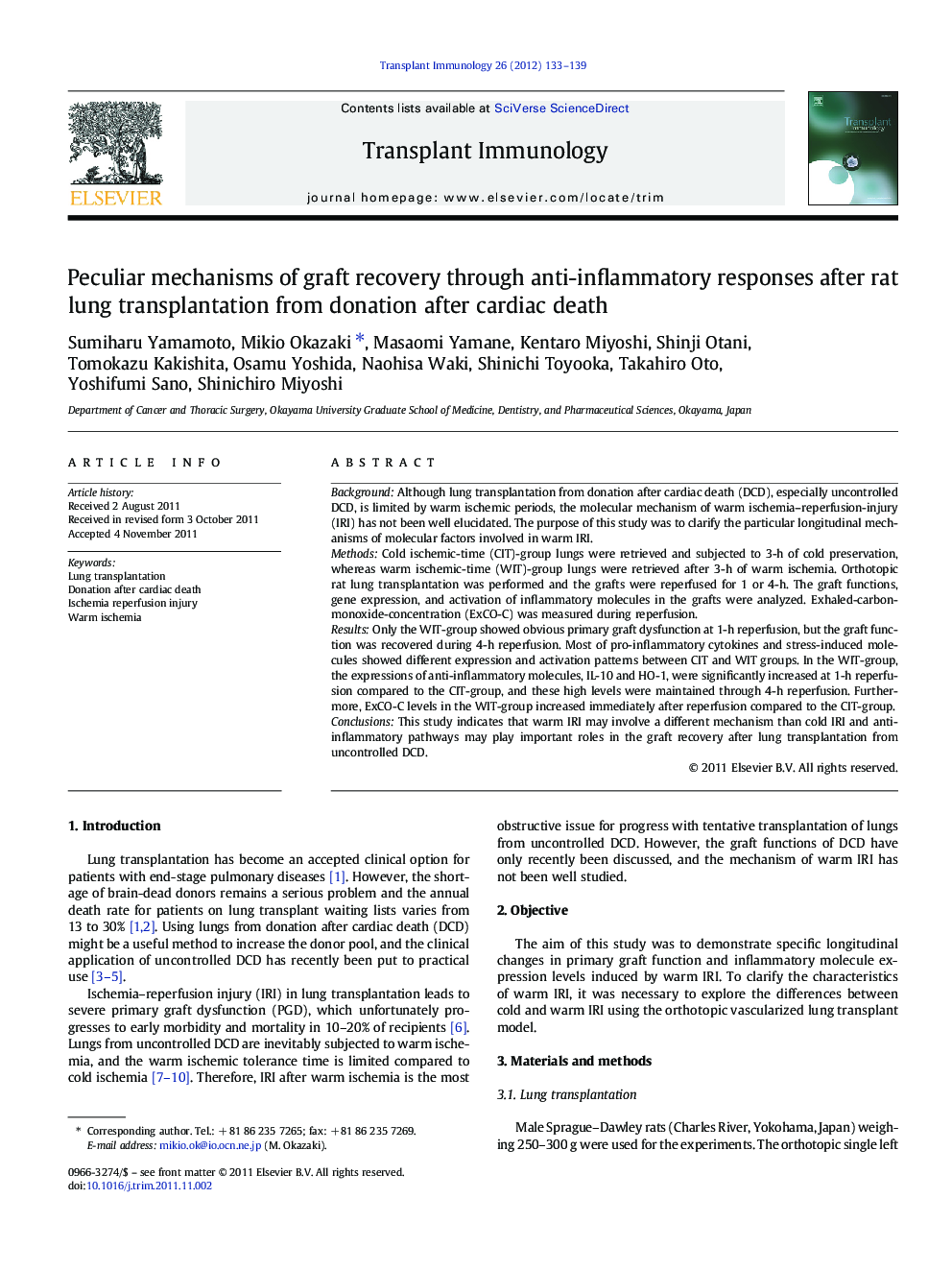| Article ID | Journal | Published Year | Pages | File Type |
|---|---|---|---|---|
| 3392176 | Transplant Immunology | 2012 | 7 Pages |
BackgroundAlthough lung transplantation from donation after cardiac death (DCD), especially uncontrolled DCD, is limited by warm ischemic periods, the molecular mechanism of warm ischemia–reperfusion-injury (IRI) has not been well elucidated. The purpose of this study was to clarify the particular longitudinal mechanisms of molecular factors involved in warm IRI.MethodsCold ischemic-time (CIT)-group lungs were retrieved and subjected to 3-h of cold preservation, whereas warm ischemic-time (WIT)-group lungs were retrieved after 3-h of warm ischemia. Orthotopic rat lung transplantation was performed and the grafts were reperfused for 1 or 4-h. The graft functions, gene expression, and activation of inflammatory molecules in the grafts were analyzed. Exhaled-carbon-monoxide-concentration (ExCO-C) was measured during reperfusion.ResultsOnly the WIT-group showed obvious primary graft dysfunction at 1-h reperfusion, but the graft function was recovered during 4-h reperfusion. Most of pro-inflammatory cytokines and stress-induced molecules showed different expression and activation patterns between CIT and WIT groups. In the WIT-group, the expressions of anti-inflammatory molecules, IL-10 and HO-1, were significantly increased at 1-h reperfusion compared to the CIT-group, and these high levels were maintained through 4-h reperfusion. Furthermore, ExCO-C levels in the WIT-group increased immediately after reperfusion compared to the CIT-group.ConclusionsThis study indicates that warm IRI may involve a different mechanism than cold IRI and anti-inflammatory pathways may play important roles in the graft recovery after lung transplantation from uncontrolled DCD.
► Lung transplantation from uncontrolled DCD is limited by warm ischemic periods. ► We investigated the mechanisms of molecular factors involved in warm IRI. ► Warm IRI may involve a different mechanism than cold IRI. ► DCD lungs demonstrated the ability to recover from primary graft dysfunction. ► Anti-inflammatory molecules may have important roles in this process.
